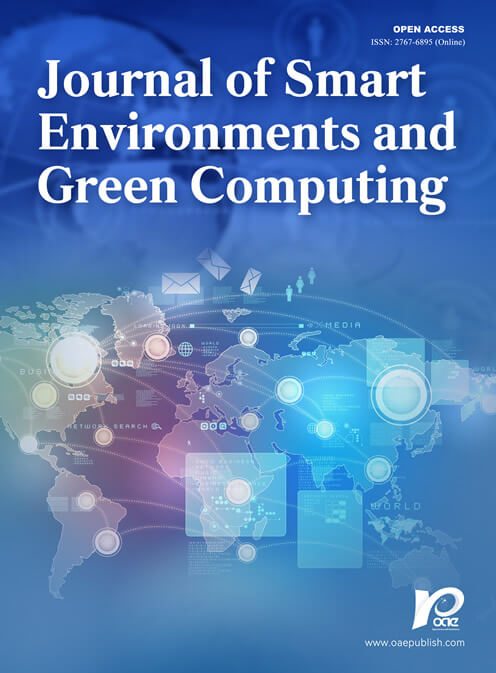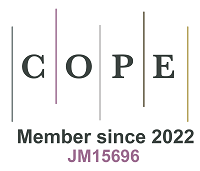REFERENCES
1. The International Organization for Standardization (ISO). Energy savings - definition of a methodological framework applicable to calculation and reporting on energy savings. Available from: https://www.iso.org/obp/ui/#iso:std:iso:17743:ed-1:v1:en [Last accessed on 27 Apr 2023].
2. The International Organization for Standardization (ISO). Energy efficiency and savings calculation for countries, regions and cities. Available from: https://www.iso.org/obp/ui/#iso:std:iso:17742:ed-1:v1:en [Last accessed on 27 Apr 2023].
3. International Energy Agency (IEA). Energy Efficiency 2020. Available from: https://www.iea.org/reports/energy-efficiency-2020 [Last accessed on 27 Apr 2023].
4. Department of Energy (DOE). Solar energy technologies program overview. Available from: https://www.nrel.gov/docs/fy02osti/30889.pdf [Last accessed on 27 Apr 2023].
5. Stephen D. Independent generation of electric power. Elsevier Science; 2014.
6. Turner WC, Doty S. Energy management handbook. 6th ed. New York: Fairmont Press; 2006; pp. 909. Available from: https://docplayer.net/95637113-Energy-management-handbook-sixth-edition.html. [Last accessed on 19 May 2023].
7. Zia MF, Elbouchikhi E, Benbouzid M. Microgrids energy management systems: a critical review on methods, solutions, and prospects. Appl Energy 2018;222:1033-55.
8. Liasi SG, Bathaee SMT. Optimizing microgrid using demand response and electric vehicles connection to microgrid. 2017 Smart Grid Conference (SGC). Proceedings of the 2017SGC; 2017 Dec 20-21; Tehran, Iran. IEEE; 2017. pp. 1-7.
9. Papageorgiou E. Fuzzy cognitive maps for applied sciences and engineering. Berlin: Springer; 2013.
10. Papageorgiou K, Singh PK, Papageorgiou E, Chudasama H, Bochtis D, Stamoulis G. Fuzzy cognitive map-based sustainable socio-economic development planning for rural communities. Sustainability 2020;12:305.
11. Poczeta K, Papageorgiou EI, Gerogiannis VC. Fuzzy cognitive maps optimization for decision making and prediction. Mathematics 2020;8:2059.
12. D'Onofrio S, Muller SM, Papageorgiou EI, Portmann E. Fuzzy reasoning in cognitive cities: an exploratory work on fuzzy analogical reasoning using fuzzy cognitive maps. 2018 IEEE International Conference on Fuzzy Systems (FUZZ-IEEE). Proceedings of the 2018FUZZ-IEEE; 2018 July 08-13; Rio de Janeiro, Brazil. IEEE 2018. pp.1-8.
13. Groumpos PP, Mpelogianni V. An overview of fuzzy cognitive maps for energy efficiency in intelligent buildings. 2016 7th International Conference on Information, Intelligence, Systems & Applications (IISA). Proceedings of the 2016IISA. 2016 July 13-15; Chalkidiki, Greece. IEEE 2016. pp.1-6..
14. Vassiliki M, Peter GP. Increasing the energy efficiency of buildings using human cognition; via fuzzy cognitive maps. IFAC-Pap 2018;51:727-32.
15. Henry HW, Symonds FW, Bohm RA, Moore JR, Snyder WT, Gibbons JH. Energy management: theory and practice. Available from: https://www.osti.gov/biblio/5894958 [Last accessed on 27 Apr 2023].
16. Lee D, Cheng C. Energy savings by energy management systems: a review. Renew Sustain Energy Rev 2016;56:760-77.
17. Li H, Yazdi M. Advanced decision-making methods and applications in system safety and reliability problems: approaches, case studies, multi-criteria decision-making, multi-objective decision-making, fuzzy risk-based models. Berlin: Springer; 2022.
18. Boglou V, Karavas C, Karlis A, Arvanitis K. An intelligent decentralized energy management strategy for the optimal electric vehicles’ charging in low‐voltage islanded microgrids. Int J Energy Res 2022;46:2988-3016.
19. Cooremans C, Schönenberger A. Energy management: a key driver of energy-efficiency investment? J Clean Prod 2019;230:264-75.
20. Swiss National Science Foundation (SNSF). In: The Grants Register 2023, London: Palgrave Macmillan; 2022. pp.1081. Available from: https://link.springer.com/referenceworkentry/10.1057/978-1-349-96053-8_7976. [Last accessed on 17 May 2023].
21. Fernando Y, Hor WL. Impacts of energy management practices on energy efficiency and carbon emissions reduction: a survey of malaysian manufacturing firms. Resour Conserv Recycl 2017;126:62-73.
22. Hasan ASMM, Trianni A. A review of energy management assessment models for industrial energy efficiency. Energies 2020;13:5713.
23. DeCanio SJ, Watkins WE. Investment in energy efficiency: do the characteristics of firms matter? Rev Econ Stat 1998;80:95-107.
24. Fawcett T, Hampton S. Why & how energy efficiency policy should address SMEs. Energy Policy 2020;140:111337.
25. Khalil E. Anon, energy management. In: Textile World; 1984. pp.30.
27. Roosa SA, Doty S, Turner WC, eds. Energy management handbook. 9th ed. New York: River Publishers; 2018; pp. 893.
28. Eastop TD, Croft DR. Energy efficiency: for engineers and technologists. Harlow, Essex, England: Longman Scientific & Technical; 1990. pp. 595.
29. Fleiter T, Worrell E, Eichhammer W. Barriers to energy efficiency in industrial bottom-up energy demand models - a review. Renew Sustain Energy Rev 2011;15:3099-111.
30. Langley KF. Energy use and energy efficiency in UK manufacturing industry up to the year 2000. London: HM Stationery Office; 1984. pp. 95
31. Reay DA. Industrial energy conservation: a handbook for engineers and managers. Available from: https://www.osti.gov/biblio/7095360 [Last accessed on 27 Apr 2023].
32. O'Callaghan PW. Energy management. London; New York: McGraw-Hill Book Co; 1993.
33. Mao M, Jin P, Hatziargyriou ND, Chang L. Multiagent-based hybrid energy management system for microgrids. IEEE Sustainable Energy :2014 July; pp. 938-946.
34. Rasmussen J. The additional benefits of energy efficiency investments - a systematic literature review and a framework for categorisation. Energy Effic 2017;10:1401-18.
36. Groumpos PP. Fuzzy cognitive maps: basic theories and their application to complex systems. Fuzzy cognitive maps: advances in theory, methodologies, tools and applications. Berlin: Springer; 2010. pp. 1-22.
37. Papageorgiou E, Stylios CN, Groumpos P. Introducing interval analysis in fuzzy cognitive map framework. Advances in Artificial Intelligence: 4th Helenic Conference on AI, SETN 2006, Heraklion, Crete, Greece, May 18-20, 2006. Proceedings 4. Springer Berlin Heidelberg; 2006. pp. 571-5.
38. Papageorgiou E, Stylios C, Groumpos P. Fuzzy cognitive map learning based on nonlinear Hebbian rule. AI 2003: Advances in Artificial Intelligence: 16th Australian Conference on AI, Perth, Australia, December 3-5, 2003. Proceedings 16. Springer Berlin Heidelberg; 2003. pp. 256-68..
39. Papageorgiou EI, Stylios CD, Groumpos PP. Active Hebbian learning algorithm to train fuzzy cognitive maps. Int J Approx Reason 2004;37:219-49.
40. Papageorgiou EI. Learning algorithms for fuzzy cognitive maps - a review study. IEEE Trans Syst Man Cybern C 2012;42:150-63.
41. Amirkhani A, Papageorgiou EI, Mosavi MR, Mohammadi K. A novel medical decision support system based on fuzzy cognitive maps enhanced by intuitive and learning capabilities for modeling uncertainty. Appl Math Comput 2018;337:562-82.
42. Al-subhi SH, Papageorgiou EI, Pérez PP, Mahdi GSS, Acuña LA. Triangular neutrosophic cognitive map for multistage sequential decision-making problems. Int J Fuzzy Syst 2021;23:657-79.
43. Papageorgiou EI, Stylios C, Groumpos PP. Unsupervised learning techniques for fine-tuning fuzzy cognitive map causal links. Int J Hum Comput Stud 2006;64:727-43.
44. Papageorgiou EI, Salmeron JL. A review of fuzzy cognitive maps research during the last decade. IEEE Trans Fuzzy Syst 2013;21:66-79.
45. Papageorgiou K, Papageorgiou E, Poczeta K, Gerogiannis V, Stamoulis G. Exploring an ensemble of methods that combines fuzzy cognitive maps and neural networks in solving the time series prediction problem of gas consumption in Greece. Algorithms 2019;12:235.
46. Alipour M, Hafezi R, Papageorgiou E, Hafezi M, Alipour M. Characteristics and scenarios of solar energy development in Iran: Fuzzy cognitive map-based approach. Renew Sustain Energy Rev 2019;116:109410.
47. Papageorgiou KI. Papageorgiou E, Poczeta K, Bochtis D, Stamoulis G. Forecasting of day-ahead natural gas consumption demand in Greece using adaptive neuro-fuzzy inference system. Energies 2020;13:2317.
48. Papageorgiou K, Carvalho G, Papageorgiou EI, Bochtis D, Stamoulis G. Decision-making process for photovoltaic solar energy sector development using fuzzy cognitive map technique. Energies 2020;13:1427.
49. Kontogianni A, Tourkolias C, Papageorgiou EI. Revealing market adaptation to a low carbon transport economy: tales of hydrogen futures as perceived by fuzzy cognitive mapping. Int J Hydrog Energy 2013:38.
50. Mourhir A, Rachidi T, Papageorgiou EI, Karim M, Alaoui FS. A cognitive map framework to support integrated environmental assessment. Environ Model Softw 2016:77.
51. Mourhir A, Papageorgiou EI, Kokkinos K, Rachidi T. Exploring precision farming scenarios using fuzzy cognitive maps. Sustain Switz 2017:9.
52. Papageorgiou K, Singh PK, Papageorgiou EI, Chudasama H, Bochtis D, Stamoulis G. Participatory modelling for poverty alleviation using fuzzy cognitive maps and OWA learning aggregation. Plos One 2020;15:e0233984.
53. Braman JMB, Wagner DA. Energy management of the multi-mission space exploration vehicle using a goal-oriented control system. 2011 Aerospace Conference; 2011; Big Sky, MT, USA. IEEE; 2011. pp. 1-6.
54. Shenawy E, Hegazy A, Abdellatef M. Design and optimization of stand-alone PV system for Egyptian rural communities. Available from: https://www.ripublication.com/ijaer17/ijaerv12n20_168.pdf. [Last accessed on 19 May 2023].
55. Kolhe M, Kolhe S, Joshi JC. Economic viability of stand-alone solar photovoltaic system in comparison with diesel-powered system for India. Energy Econ 2002;24:155-165.
56. Wang, Nehrir MH. Power management of a stand-alone wind/photovoltaic/fuel cell energy system. IEEE Trans Energy Convers 2008;23:957-67.
57. Groumpos PP, Khouzam KY, Khouzam LS. A dynamic programming approach to the energy management problem of photovoltaic power systems. Conference Record of the Twentieth IEEE Photovoltaic Specialists Conference; 1988; Las Vegas, NV, USA. IEEE; 1988. pp. 1164-1167 vol.2.
58. Groumpos PP, Papageorgiou GD. An optimum load management strategy for stand-alone photovoltaic power systems. Sol Energy 1984; 46:647-52.
59. Groumpos P, Cull R, Ratajczak A. An overview of control aspects of a village stand-alone photovoltaic power system. IEEE Trans Power Appar Syst 1984;PAS-103:2845-53.
60. Shafie-khah M, Siano P. A stochastic home energy management system considering satisfaction cost and response fatigue. IEEE Trans Ind Inf 2018;14:629-38.
61. Hadjiski MB, Christova NG, Groumpos PP. Design of hybrid models for complex systems. Available from: http://citeseerx.ist.psu.edu/viewdoc/download?doi=10.1.1.133.6161&rep=rep1&type=pdf [Last accessed on 27 Apr 2023].
62. Groumpos PP, Stylios CD. Modelling supervisory control systems using fuzzy cognitive maps. Chaos Solitons Fractals 2000;11:329-36.
63. Papageorgiou EI, Stylios CD, Groumpos PP. An integrated two-level hierarchical system for decision making in radiation therapy based on fuzzy cognitive maps. IEEE Trans Biomed Eng 2003;50:1326-39.
64. Doukas H, Patlitzianas KD, Iatropoulos K, Psarras J. Intelligent building energy management system using rule sets. Build Environ 2007;42:3562-9.
65. Espinosa-paredes G, Nuñez-carrera A, Laureano-cruces A, Vázquez-rodríguez A, Espinosa-martinez E. Emergency management for a nuclear power plant using fuzzy cognitive maps. Ann Nucl Energy 2008;35:2387-96.
66. Kyriakarakos G, Dounis AI, Arvanitis KG, Papadakis G. A fuzzy cognitive maps -petri nets energy management system for autonomous polygeneration microgrids. Appl Soft Comput 2012;12:3785-97.
67. Amer M, Jetter A, Daim T. Development of fuzzy cognitive map (FCM)‐based scenarios for wind energy. Int J Energy Sect Manag 2011;5:564-84.
68. Karagiannis IE, Groumpos PP. Modeling and analysis of a hybrid-energy system using fuzzy cognitive maps. 21st Mediterranean Conference on Control and Automation; 2013 June 25-28; Platanias, Greece,. IEEE; 2013. pp. 257-64.
69. Mpelogianni V, Groumpos PP. Using fuzzy control methods for increasing the energy efficiency of buildings. Int J Monit Surveill Technol Res 2015;3:1-22.
70. Mpelogianni V, Marnetta P, Groumpos PP. Fuzzy cognitive maps in the service of energy efficiency. IFAC-Pap 2015;48:1-6.
71. Amer M, Daim TU, Jetter A. Technology roadmap through fuzzy cognitive map-based scenarios: the case of wind energy sector of a developing country. Technol Anal Strateg Manag 2016;28:131-55.
72. Çoban V, Onar SÇ. Modeling renewable energy usage with hesitant Fuzzy cognitive map. Complex Intell Syst 2017;3:155-66.
73. Groumpos PP. Advanced automation control systems (AACS) for energy and comfort management in a building environment. IFAC-Pap 2018;51:34-8.
74. Mpelogianni V, Giannousakis K, Kontouras E, Groumpos PP, Tsipianitis D. Proactive building energy management methods based on fuzzy logic and expert intelligence. IFAC-Pap 2019;52:519-22.
75. Mpelogianni V, Groumpos P, Tsipianitis D, Papagiannaki A, Gionas J. Proactive building energy management based on fuzzy logic and expert intelligence. Inf Intell Syst Appl 2020;1:56-8.
76. Groumpos PP, Mpelogianni V. New advanced technology methods for energy efficiency of buildings. 2020 11th International Conference on Information, Intelligence, Systems and Applications IISA; 2020 July 15-17; Piraeus, Greece. IEEE; 2020. pp. 1-8.
77. Vergini ES, Groumpos PP. Advanced fuzzy cognitive maps modelling a nearly zero energy building. 2020 11th International Conference on Information, Intelligence, Systems and Applications IISA; 2020 July 15-17; Piraeus, Greece; IEEE; 2020. pp. 1-5.
78. Rezaee M, Yousefi S, Hayati J. Root barriers management in development of renewable energy resources in Iran: an interpretative structural modeling approach. Energy Policy 2019;129:292-306.
79. Eliasi H, Ghoreyshi M. A new control strategy for energy management in plug-in hybrid electric vehicles based on fuzzy cognitive maps. Ku-Energy 2019;9:14-25.
80. Behrooz F, Mariun N, Marhaban M, Mohd Radzi M, Ramli A. Review of control techniques for HVAC systems - nonlinearity approaches based on fuzzy cognitive maps. Energies 2018;11:495.
81. Behrooz F, Yusof R, Mariun N, Khairuddin U, Hilmi Ismail Z. Designing intelligent MIMO nonlinear controller based on fuzzy cognitive map method for energy reduction of the buildings. Energies 2019;12:2713.
82. de Salazar E, García Sanz-calcedo J. Study on the influence of maintenance operations on energy consumption and emissions in healthcare centres by fuzzy cognitive maps. J Build Perform Simul 2019;12:420-32.
83. Nikas A, Ntanos E, Doukas H. A semi-quantitative modelling application for assessing energy efficiency strategies. Appl Soft Comput 2019;76:140-55.
84. Nikas A, Stavrakas V, Arsenopoulos A, et al. Barriers to and consequences of a solar-based energy transition in Greece. Environ Innov Soc Transit 2020;35:383-99.
85. Tu C, Mu X, Chen J, et al. Study on the interactive relationship between urban residents’ expenditure and energy consumption of production sectors. Energy Policy 2021;157:112502.
86. Papageorgiou K, Carvalho G, Papageorgiou EI, Papandrianos NI, Mendonça M, Stamoulis G. Exploring brazilian photovoltaic solar energy development scenarios using the fuzzy cognitive map wizard tool; International Conference on Fuzzy Systems (FUZZ-IEEE); 2020 July 19-24; Glasgow, UK. IEEE; 2020. pp. 1-8.
87. Zare S, Alipour M, Hafezi M, Stewart RA, Rahman A. Examining wind energy deployment pathways in complex macro-economic and political settings using a fuzzy cognitive map-based method. Energy 2022;238:121673.
88. Poczęta K, Kubuś Ł, Yastrebov A, Papageorgiou EI. Temperature forecasting for energy saving in smart buildings based on fuzzy cognitive map. In: Szewczyk R, Zieliński C, Kaliczyńska M, editors. Automation 2018. Cham: Springer International Publishing; 2018. pp. 93-103.
89. Orang O, Silva R, de Lima e Silva PC, Guimaraes FG. Solar energy forecasting with fuzzy time series using high-order fuzzy cognitive maps. 2020 IEEE International Conference on Fuzzy Systems (FUZZ-IEEE); 2020 July 19-24; Glasgow, UK. IEEE; 2020. pp. 1-8.
90. Huang S, Lo S, Lin Y. Application of a fuzzy cognitive map based on a structural equation model for the identification of limitations to the development of wind power. Energ Policy 2013;63:851-861.
91. Kokkinos K, Karayannis V, Moustakas K. Circular bio-economy via energy transition supported by fuzzy cognitive map modeling towards sustainable low-carbon environment. Sci Total Environ 2020;721:137754.
92. López-bernabé E, Linares P, Galarraga I. Energy-efficiency policies for decarbonising residential heating in Spain: a fuzzy cognitive mapping approach. Energy Policy 2022;171:113211.
93. Sharma A, Tselykh A. Machine learning-enabled estimation system using fuzzy cognitive mapping: a review. In: Singh PK, Wierzchoń ST, Tanwar S, Rodrigues JJPC, Ganzha M, editors. Proceedings of Third International Conference on Computing, Communications, and Cyber-Security. Singapore: Springer Nature; 2023. pp. 487-500.
94. Shahbazi R. Development of a decision support tool based on fuzzy cognitive mapping for energy transition of district heating systems of Leeuwarden. Available from: http://essay.utwente.nl/92647/ [Last accessed on 27 Apr 2023].
95. Ibrahim O, Bakare MS, Amosa TI, et al. Development of fuzzy logic-based demand-side energy management system for hybrid energy sources. Energy Convers Manag X 2023;18:100354.
96. Agbossou I. Fuzzy photogrammetric algorithm for city built environment capturing into urban augmented reality model. In Elmer P. P. Dadios (Editor). Advances in fuzzy logic systems. IntechOpen; 2023.
97. Mpelogianni V, Groumpos PP. Re-approaching fuzzy cognitive maps to increase the knowledge of a system. AI Soc 2018;33:175-88.
98. Groumpos PP. Overcoming intelligently some of the drawbacks of fuzzy cognitive maps. 2018 9th International Conference on Information, Intelligence, Systems and Applications (IISA); 2018 July 23-25; Zakynthos, Greece. IEEE; 2018. pp. 1-6.
99. Mpelogianni V, Kosmas G, Groumpos PP. Modeling a microgrid using fuzzy cognitive maps. In: Kravets AG, Groumpos PP, Shcherbakov M, Kultsova M, editors. Creativity in Intelligent Technologies and Data Science. Cham: Springer International Publishing; 2019. pp. 334-43.
100. Mpelogianni V, Groumpos PP. Modeling the building energy management system of a building using a revised approach of fuzzy cognitive maps. Available from: http://siit.ugatu.su/index.php/journal/article/view/8 [Last accessed on 27 Apr 2023].
101. Rohrer JM. Thinking clearly about correlations and causation: graphical causal models for observational data. Adv Methods Pract Psychol Sci 2018;1:27-42.
102. Wang S. Intelligent buildings and building automation. Available from: https://www.academia.edu/10254378/Intelligent_Buildings_and_Building_Automation?auto=download [Last accessed on 27 Apr 2023].
103. Sung J, Troilo M, Howarth N, et al. Better energy efficiency policy with digital tools. Available from: https://www.iea.org/articles/better-energy-efficiency-policy-with-digital-tools [Last accessed on 27 Apr 2023].
104. International Energy Agency (IEA). A call to action on efficient and smart appliances. Available from: https://www.iea.org/articles/a-call-to-action-on-efficient-and-smart-appliances [Last accessed on 27 Apr 2023].






